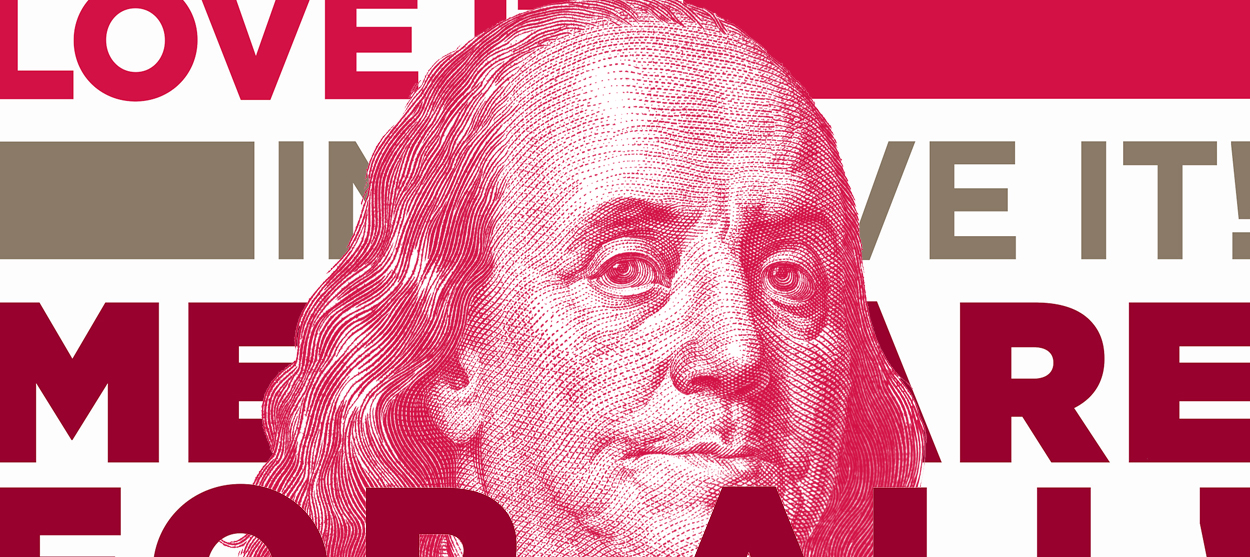How much will Medicare-for-all save Americans? A lot.
The research is in


It's primary season, and most political coverage has been obsessed with who is going to win and take on Donald Trump in November. Policy issues which got wide discussion in 2019, like the merits of Medicare-for-all, have been pushed off the front burner of the news stove (though it did get some typically superficial discussion in the most recent Democratic debate).
But academic research in that area has not stopped. And over the past few months, several studies have examined one of the key questions on Medicare-for-all: namely, would it save American society money? The unanimous answer is yes. Putting everyone on a world-class universal Medicare program — with no premiums, no deductibles, no co-insurance, and almost no co-pays, paid for with taxes — would leave most of us with more money in our pockets. And other research demonstrates that there would probably not be a giant increase in health care use if it is passed.
To be fair, a few commentators have been keeping the discussion going. John Oliver, for instance, provided a quite good breakdown of Medicare-for-all in his show Last Week Tonight:
The Week
Escape your echo chamber. Get the facts behind the news, plus analysis from multiple perspectives.

Sign up for The Week's Free Newsletters
From our morning news briefing to a weekly Good News Newsletter, get the best of The Week delivered directly to your inbox.
From our morning news briefing to a weekly Good News Newsletter, get the best of The Week delivered directly to your inbox.

Overall, it's a great piece. However Oliver is far too wishy-washy on the cost question. He notes that some studies have found enormous savings, and even the libertarian Mercatus Center found a small cost improvement. However he notes that some studies predict higher spending, especially one from the Urban Institute which found dramatically higher spending, and concludes it's impossible to say what might happen on costs. "No one can possibly know for sure," he says. "There are just too many variables involved."
But this simply isn't so. To start with, as Matt Bruenig explains at the People's Policy Project, the Urban Institute study has major problems. Most importantly, they did not actually study the Medicare-for-all bill sponsored by Bernie Sanders. Instead they substituted their own plan in which reimbursement rates are assumed to be 15 percent higher than in the Sanders plan. That's why their cost estimate is so high, but it simply has nothing to do with what the actual bill in question might do if implemented. Furthermore, they seriously underestimate the potential administrative cost savings for hospitals (relying on a fact sheet from a lobbyist group), and simply assume "utilization," or use of medical services, will dramatically increase (more on this later).
On the other hand, the latest research does examine policies more in line with the Sanders bill. The most wide-ranging of the three new studies was by Christopher Cai and others, published in January in PLOS Medicine. They conducted a meta-analysis of Medicare-for-all research — that is, they surveyed a bunch of papers on the topic, picked out the best 22, and aggregated the results. (These papers were not all directly about the specific Sanders bill, but they were a lot closer than the Urban Institute paper.) They found that 19 of the analyses "predicted net savings ... in the first year of program operation and 20 ... predicted savings over several years; anticipated growth rates would result in long-term net savings for all plans."
More recently, a paper published in The Lancet in February by Alison P. Galvan and others examined the cost of Sanders' bill directly. They constructed a mathematical model (which you can play with online) to examine what setting the various parameters of a Medicare-for-all model would cost, and plugged in the figures in Sanders' bill and their best estimates of other factors. They calculated "that the Medicare-for-all Act would reduce national health-care expenditure by more than $458 billion, corresponding to 13.1 percent of health-care expenditure in 2017. We also project that the Medicare-for-all Act would save more than 68,500 lives every year, compared with the status quo."
A free daily email with the biggest news stories of the day – and the best features from TheWeek.com
That brings me back to utilization. Galvan et al. assume that use of care will increase, but compensating savings on administration, prescription drugs, and provider prices will more than make up for it. However, another recent study raised questions about this point. Last November, Dr. Adam Gaffney and others published a paper in the Journal of General Internal Medicine examining what happened to health care use under coverage expansions in other countries and the U.S. They found that when lots more people got access to care, use generally did not increase — instead it was redistributed across the population. The people using the most care got a bit less, while the people formerly shut out of the system got a lot more.
This argument is sure to lead conservatives to shout about the dread "rationing," presenting the Medicare-for-all future as some kind of Soviet breadline. And on one level, this study does suggest that under the Sanders bill, there would be a relatively small group that would end up cutting back their use of health care — though as Gaffney et al. emphasize, there is little evidence there were actually any negative health effects as a result in previous coverage expansions. They cite suggestive evidence that medical providers under our current system tend to dial up their recommended care to keep their facilities full, even if that requires frivolous or unnecessary procedures, while dialing it back when everyone has coverage and there are plenty of customers.
However, it's key to understand that America already has a tremendous amount of rationing of the worst kind — namely rationing by price. About 28 million Americans have no health insurance, and a further 44 million are underinsured. The most recent Federal Reserve survey of Americans' economic well-being found that a quarter of "adults skipped necessary medical care in 2018 because they were unable to afford the cost." Across the country, every day tens of millions of Americans are rationing their insulin, taking taxis to the emergency room, walking around with wrecked joints or rotting teeth, or begging bystanders not to call an ambulance when they are grievously injured.
Even people with decent insurance commonly experience long wait times. A 2017 survey of 15 major metropolitan areas found that appointment wait times to see a physician had increased by 30 percent since 2014. (Indeed, some years ago I was recommended for a colonoscopy and had to wait over four months to see a specialist — even in doctor-rich DC.)
No country has a limitless supply of doctors, nurses, and hospitals. Decent, humane countries allocate their health resources according to need — very sick or injured people get first priority, while those with non-emergency conditions or recommended tests might have to wait awhile. In the United States today, rich people can get all the care they want, even if it's pointless or elective, because they can use their money to cut to the front of the line, while poor and working-class people routinely have to wait for months or simply go without.
So while a Sanders bill would probably not cause an explosion of health care use, it might cause some wealthier people to wait longer than they usually do. Insofar as that becomes a problem, we should increase the supply of providers, especially doctors. The U.S. currently has only 2.3 doctors per 1,000 residents — about a quarter fewer than Norway, a third fewer than France, and less than half as many as Cuba. We could surely use a couple hundred thousand more physicians — and if their pay was more in line with international norms, it wouldn't even cost much.
But that's a question for the future. At bottom, the research is clear: Medicare-for-all would save the United States money, probably quite a lot, and save tens of thousands of lives. Once a baseline of universal coverage is established, we can start fixing up the rest of the health care system. With some time and effort, Americans could have their health care cake and eat it too.
Want more essential commentary and analysis like this delivered straight to your inbox? Sign up for The Week's "Today's best articles" newsletter here.
Ryan Cooper is a national correspondent at TheWeek.com. His work has appeared in the Washington Monthly, The New Republic, and the Washington Post.
-
 Trump's ‘weaponization czar’ demoted at DOJ
Trump's ‘weaponization czar’ demoted at DOJSpeed Read Ed Martin lost his title as assistant attorney general
-
 Gabbard faces questions on vote raid, secret complaint
Gabbard faces questions on vote raid, secret complaintSpeed Read This comes as Trump has pushed Republicans to ‘take over’ voting
-
 Which way will Trump go on Iran?
Which way will Trump go on Iran?Today’s Big Question Diplomatic talks set to be held in Turkey on Friday, but failure to reach an agreement could have ‘terrible’ global ramifications
-
 The billionaires’ wealth tax: a catastrophe for California?
The billionaires’ wealth tax: a catastrophe for California?Talking Point Peter Thiel and Larry Page preparing to change state residency
-
 Mamdani vows big changes as New York’s new mayor
Mamdani vows big changes as New York’s new mayorSpeed Read
-
 Bari Weiss’ ‘60 Minutes’ scandal is about more than one report
Bari Weiss’ ‘60 Minutes’ scandal is about more than one reportIN THE SPOTLIGHT By blocking an approved segment on a controversial prison holding US deportees in El Salvador, the editor-in-chief of CBS News has become the main story
-
 Has Zohran Mamdani shown the Democrats how to win again?
Has Zohran Mamdani shown the Democrats how to win again?Today’s Big Question New York City mayoral election touted as victory for left-wing populists but moderate centrist wins elsewhere present more complex path for Democratic Party
-
 Millions turn out for anti-Trump ‘No Kings’ rallies
Millions turn out for anti-Trump ‘No Kings’ ralliesSpeed Read An estimated 7 million people participated, 2 million more than at the first ‘No Kings’ protest in June
-
 Ghislaine Maxwell: angling for a Trump pardon
Ghislaine Maxwell: angling for a Trump pardonTalking Point Convicted sex trafficker's testimony could shed new light on president's links to Jeffrey Epstein
-
 The last words and final moments of 40 presidents
The last words and final moments of 40 presidentsThe Explainer Some are eloquent quotes worthy of the holders of the highest office in the nation, and others... aren't
-
 The anger fueling the Bernie Sanders and Alexandria Ocasio-Cortez barnstorming tour
The anger fueling the Bernie Sanders and Alexandria Ocasio-Cortez barnstorming tourTalking Points The duo is drawing big anti-Trump crowds in red states
